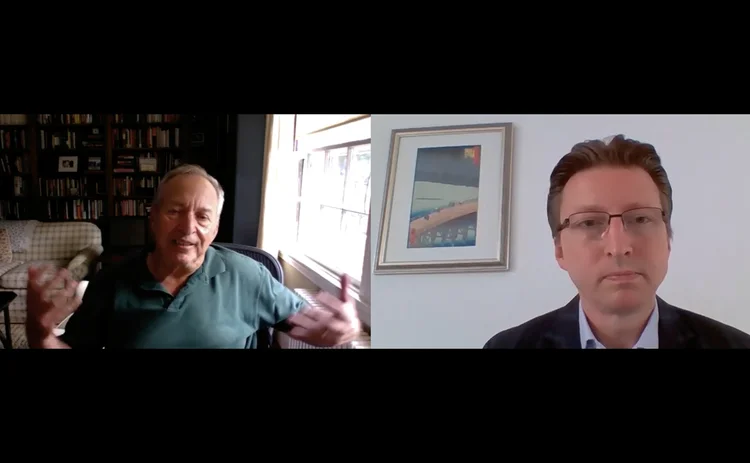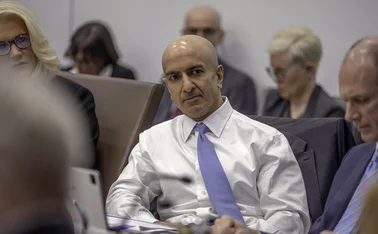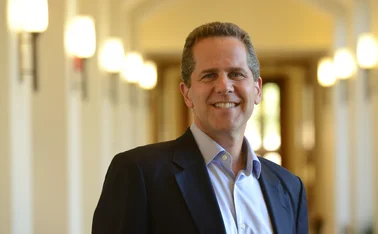
Summers fears for Fed’s ability to remove ‘punchbowl’
Central banks may not be able to counter inflation threat, says former US Treasury secretary

The US Federal Reserve System and other central banks may not be able to tighten monetary policy to counter rising prices, should the current rise in inflation prove to be less than transitory, according to Lawrence Summers, former US Treasury Secretary.
In an interview with Central Banking, Summers stresses he does not view current Fed officials as fearful of doing their job, but rather that the scope of economic shocks and changes to the Federal Open Market Committee could make containing inflation a challenge.
“I do not worry that the current Fed will be craven before political authority in the way that the Fed was on many accounts in the early 1970s,” Summers, a professor at Harvard University and its former president, tells Central Banking. “But that does not mean that carrying through on anti-inflationary commitments is something that necessarily could be relied on, given all the shocks that may occur in the economic environment.”
The former director of the National Economic Council believes the US economy is operating above its capacity due to existing fiscal stimulus, which he described as running $170 billion per month above the US’s GDP output gap.
“When I see fiscal expansion in the order of five times the GDP gap, then I ask myself, with a reasonable multiplier, isn’t there very substantial danger that we are going to overdo it?”
The former chief economist at the World Bank adds: “It seemed to me that the programme that passed last winter was not justifiable using any theory of appropriate fiscal expansion.”
Summers also fears there are many parallels between policy today and the 1960s and 1970s, when inflation started to build – something that was exacerbated by energy supply shocks.
“I’m struck by the fact that we’re going through a kind of cycle that’s familiar to people who studied the history of the 1960s and 1970s. First, we deny that inflation is rising, and predict that inflation will remain low. Then, we ascribe inflation to a variety of specific factors that varies from month to month. Then, we take encouragement when specific factors reduce it for a month or two. And, then, we argue what is so harmful about somewhat higher inflation, anyway, relative to the catastrophic costs of recessions, particularly for the disadvantaged.”
Summers says that when he tracks what “has been said” by central banks and by policy officials more broadly, there appears to be a move through that cycle: “The last stage hasn’t yet been something we’ve heard explicitly, though it’s implicit in some of the rhetoric, and if one listens to progressive economists, outside of the central bank, it is almost ubiquitous. All of that seems to me to give us substantial cause for concern.”
Summers also stresses the risks associated with ‘unknown unknowns’ and the dangers of specifying contingencies when it is impossible to know unknowable events. In a swipe at forward guidance, he says: “I would also make the further point that credibility has more to do with deeds than with words.”
Summers says the larger scale of financial markets compared with the 1960s might make the Fed’s job more difficult, particularly as it lacks the array of credit and other controls compared with the 1960s and 1970s.
“I don’t think that larger financial markets call into question the central proposition: which is that if monetary policy loses interest in removing the ‘punchbowl’ before the party gets good, and, indeed, loses interest in removing the punchbowl when the party is seen to be very good, unless it’s established that the guests plan to stay till dawn, then I think we are entering a more perilous period in terms of inflation expectations,” he says.
“It is that change in doctrine from the monetary policy of [William] McChesney Martin to aspects of the supply-side, structural-sensitive monetary view of inflation by Arthur Burns and Bill Miller, that I think is particularly problematic.”
Only users who have a paid subscription or are part of a corporate subscription are able to print or copy content.
To access these options, along with all other subscription benefits, please contact info@centralbanking.com or view our subscription options here: www.centralbanking.com/subscriptions
You are currently unable to print this content. Please contact info@centralbanking.com to find out more.
You are currently unable to copy this content. Please contact info@centralbanking.com to find out more.
Copyright Infopro Digital Limited. All rights reserved.
As outlined in our terms and conditions, https://www.infopro-digital.com/terms-and-conditions/subscriptions/ (point 2.4), printing is limited to a single copy.
If you would like to purchase additional rights please email info@centralbanking.com
Copyright Infopro Digital Limited. All rights reserved.
You may share this content using our article tools. As outlined in our terms and conditions, https://www.infopro-digital.com/terms-and-conditions/subscriptions/ (clause 2.4), an Authorised User may only make one copy of the materials for their own personal use. You must also comply with the restrictions in clause 2.5.
If you would like to purchase additional rights please email info@centralbanking.com







